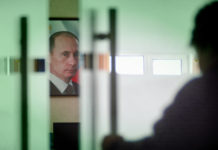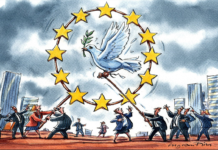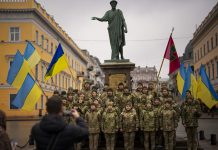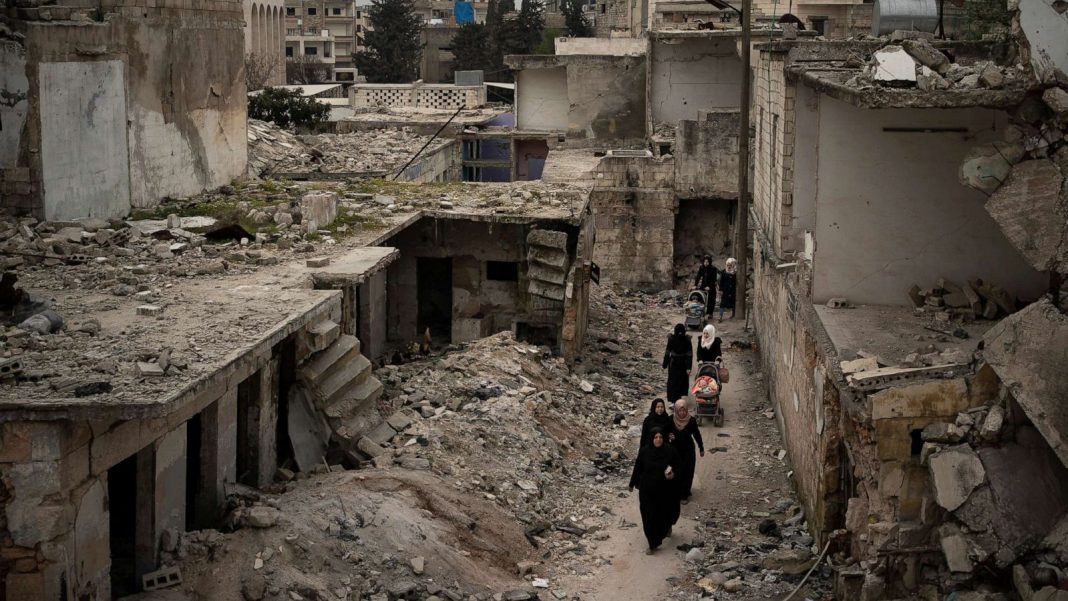This analysis aims to display the failures of the international community in tackling the ongoing Syrian conflict through the lens of cosmopolitanism and globalization, by focusing on the steps proposed by Mary Kaldor regarding the new wars’ ending solution. Throughout 11 years, Syria has experienced political, economic, social, and humanitarian chaos starting from peaceful pro-democracy manifestations against Bashar al -Assad regime and coming to an ever-lasting conflict between rebels backed by US, Western powers, and the Arab League and Assad’s government advocated by Russia and Iran. On this background, foreign fighters affiliated with al-Qaeda have taken advantage of the critical-situation spreading terrorism.
Despite the efforts made by both States and international organizations, the conflict is still unfolding. In the next paragraphs, I intend to identify the issues of the international response and to propose a different point of view approaching this respect, relying on Mary Kaldor’s steps for de-escalating the conflict.
As a term, globalization represents a complex process that contains both integration and fragmentation, homogenization and differentiation. In other words, this concept includes both generalization and particularities. Given the Syrian Civil War, it is noticed that the State as a nation is put under a double pressure. On one hand, it is the identity pressure taking into consideration that the goal of the new wars is an identity one. Interethnic clashes emerge from the collapse of the State imposing its will on the citizens. On the other hand, it is identified the global pressure coming from supranational entities in the process of building a global society.
Another key point is the cosmopolitan -Kantian view, which contends that all people should enjoy the same rights due to their humanity, focusing on the right to ‘hospitality’ which asset that immigrants or refugees should be treated with respect. The Syrian crisis has caused 5, 683, 982 Syrians to become refugees, Turkey being the State which had welcomed most of them. Along with this right and its consequences, the State’s actions were guided by the ‘Responsibility to Protect‘ concept, one of the UN doctrines which claim that the international community must intervene in cases where civilians are experiencing hostiles and atrocities. The initiative has failed to reach its goal – to protect civilians – since the lives of the interventionists prevailed the ones of the victims. Following the principle of humanity, interventionist’s life should not be valued over the civilians at risk by life being an equal right to all people.
Firstly, during the early years of crisis that represented the transition from an uprising to a civil war, States have split out and backed one of the combatants. On one hand, the position of the US, the European Union, and the Arab League was anti-Assad’s regime, thus they introduced sanctions measures in this regard. On the other hand, Iran and Russia have remained the ever-lasting Syria’s partners. One of the preliminary actions was the violence cessation through military intervention, proposed both by the Arab League and the UN. Moreover, the UN has implemented certain resolutions establishing a UN Supervision Mission in Syria to counter violence, to start demobilization troops, and also the transition to democracy. In 2015, a political solution prevailed the cessation of violence under the UN Resolution. Hence, the direction of this strategy was right, but not enough.
To tackle an interethnic war, it is necessary to restore the State by rebuilding legitimacy, civilians have to be confident again in the government. Both citizens and the statesperson ought to reach a consensus, regardless of the contained compromises. In other words, reconstruction means a new way of shaping the political authorities to comply with the needs of the civilians. All society branches have to make the transitions – education, infrastructure, economy, open dialogue, free media – to prevent conflict to spark again. Prior to making the transition to democracy, law and order have to be restored.
Secondly, the rebel’s supporters, Turkey, Saudia Arabia, Qatar, and later on the US changed the method of managing the conflict by providing military force to the rebels, responding to violence in the same manner. This action has brought more casualties among the civilians, therefore more humanitarian assistance was needed. From a cosmopolitan point of view, a more appropriate solution implies a minimal use of force to decrease losses. To implement this method, peacekeeping military intervention actors have to be trained differently, developing both military and policing skills.
Moreover, the scope of his missions is different from the traditional soldier: an international soldier fights for the sake of humanity. In this regard, impartiality plays a significant role in the cosmopolitan view. Peacekeeping actors must not provide help of any combatant side, as previously happened, they must help everybody in need under the law. From my view, the perspective exposed above is applying also in a counter-terrorism case. Among the opposition was ever-lasting dissension mostly between the Nusrah Front and ISIL, a militant group that try to establish the Caliphate, using propaganda both in Syria and Iraq. Consequently, the US-trained foreign fighters to counteract the reach of their influence on the Middle East, thus casualties among Syrian people were increasing.
Another significant point is represented by the humanitarian assistance aid. These type of actions has been deployed continuously throughout the years according to the UN Resolutions in this regard taking into consideration that over 12 million people in Syria is unable to provide themselves with the essentials. Nevertheless, humanitarian assistance is not efficient in the long term if it is not bolstered by assistance in the other sectors. Assistance must be provided on reconstructing the Syrian society both on a political and economic level, along with disarmament and demobilization.
Thirdly, along with the intervention of the International Community, conflict can become to an end with the implication of the transnational society. Given the fact that national leaders have failed, most-trusted leaders may be involved to bring solutions and confidence to the civilians. In addition, local experts can encourage people to decrease corruption, criminality, and dissonance on a regional level.
On close analysis, the major impediment to achieving peace in Syria was the division of the political, military, and humanitarian strategies. On one hand, the key point of all these interventions and actions lies in the coordination on two levels: from a local level to restore law and order among civilians to cease violence and from a global level appealing to global forces such as the international organizations and experts in the field. On the other hand, the quintessential method consists of the openers of both governmental powers and civilians to reach a consensus through concession.






















